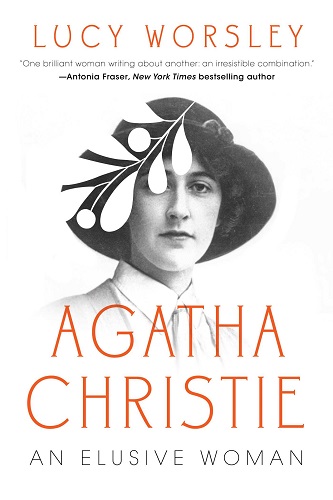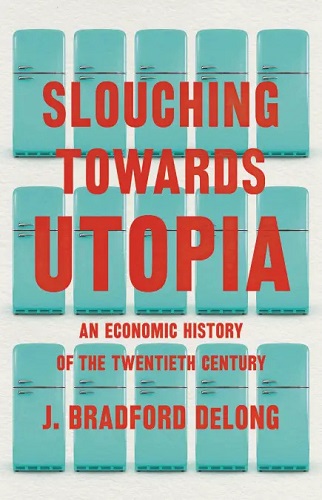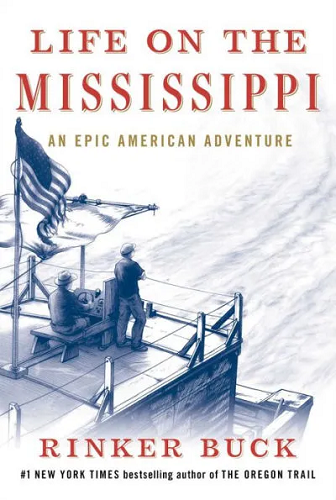Featured Non-Fiction & Biography

HOW TO SPEAK WHALE
by Tom Mustill
What if animals and humans could speak to one another? Tom Mustill—the nature documentarian who went viral when a thirty‑ton humpback whale breached onto his kayak—asks this question in his thrilling investigation into whale science and animal communication.
“When a whale is in the water, it is like an iceberg: you only see a fraction of it and have no conception of its size.”
On September 12, 2015, Tom Mustill was paddling in a two-person kayak with a friend just off the coast of California. It was cold, but idyllic—until a humpback whale breached, landing on top of them, releasing the energy equivalent of forty hand grenades. He was certain he was about to die, but they both survived, miraculously unscathed. In the interviews that followed the incident, Mustill was left with one question: What could this astonishing encounter teach us?
Drawing from his experience as a naturalist and wildlife filmmaker, Mustill started investigating human–whale interactions around the world when he met two tech entrepreneurs who wanted to use artificial intelligence (AI)—originally designed to translate human languages—to discover patterns in the conversations of animals and decode them. As he embarked on a journey into animal eavesdropping technologies, where big data meets big beasts, Mustill discovered that there is a revolution taking place in biology, as the technologies developed to explore our own languages are turned to nature.
From seventeenth-century Dutch inventors, to the whaling industry of the nineteenth century, to the cutting edge of Silicon Valley, How to Speak Whale examines how scientists and start-ups around the world are decoding animal communications. Whales, with their giant mammalian brains, virtuoso voices, and long, highly social lives, offer one of the most realistic opportunities for this to happen. But what would the consequences of such human animal interaction be?
We’re about to find out.

AMERICAN DEMON
by Daniel Stashower
New York Times bestselling author and Edgar Award-winner Daniel Stashower returns with American Demon, a historical true crime starring legendary lawman Eliot Ness.
Boston had its Strangler. California had the Zodiac Killer. And in the depths of the Great Depression, Cleveland had the Mad Butcher of Kingsbury Run.
On September 5th, 1934, a young beachcomber made a gruesome discovery on the shores of Cleveland’s Lake Erie: the lower half of a female torso, neatly severed at the waist. The victim, dubbed “The Lady of the Lake,” was only the first of a butcher’s dozen. Over the next four years, twelve more bodies would be scattered across the city. The bodies were dismembered with surgical precision and drained of blood. Some were beheaded while still alive.
Terror gripped the city. Amid the growing uproar, Cleveland’s besieged mayor turned to his newly-appointed director of public safety: Eliot Ness. Ness had come to Cleveland fresh from his headline-grabbing exploits in Chicago, where he and his band of “Untouchables” led the frontline assault on Al Capone’s bootlegging empire. Now he would confront a case that would redefine his storied career.
Award-winning author Daniel Stashower shines a fresh light on one of the most notorious puzzles in the annals of crime, and uncovers the gripping story of Ness’s hunt for a sadistic killer who was as brilliant as he was cool and composed, a mastermind who was able to hide in plain sight. American Demon reconstructs this ultimate battle of wits between a hero and a madman.

THE CHAOS MACHINE
by Max Fisher
From a New York Times investigative reporter, “an essential book for our times” (Ezra Klein), tracking the high-stakes inside story of how Big Tech’s breakneck race to drive engagement—and profits—at all costs fractured the world
We all have a vague sense that social media is bad for our minds, for our children, and for our democracies. But the truth is that its reach and impact run far deeper than we have understood. Building on years of international reporting, Max Fisher tells the gripping and galling inside story of how Facebook, Twitter, YouTube, and other social networks, in their pursuit of unfettered profits, preyed on psychological frailties to create the algorithms that drive everyday users to extreme opinions and, increasingly, extreme actions. As Fisher demonstrates, the companies’ founding tenets, combined with a blinkered focus maximizing engagement, have led to a destabilized world for everyone.
Traversing the planet, Fisher tracks the ubiquity of hate speech and its spillover into violence, ills that first festered in far-off locales to their dark culmination in America during the pandemic, the 2020 election, and the Capitol Insurrection. Through it all, the social-media giants refused to intervene in any meaningful way, claiming to champion free speech when in fact what they most prized were limitless profits. The result, as Fisher shows, is a cultural shift toward a world in which people are polarized not by beliefs based on facts, but by misinformation, outrage, and fear.
His narrative is about more than the villains, however. Fisher also weaves together the stories of the heroic outsiders and Silicon Valley defectors who raised the alarm and revealed what was happening behind the closed doors of Big Tech. Both panoramic and intimate, The Chaos Machine is the definitive account of the meteoric rise and troubled legacy of the tech titans, as well as a rousing and hopeful call to arrest the havoc wreaked on our minds and our world before it’s too late.

SURVIVAL OF THE RICHEST
by Douglas Rushkoff
Named One of the Most Anticipated Books of 2022 by Kirkus and Literary Hub
The tech elite have a plan to survive the apocalypse: they want to leave us all behind.
Five mysterious billionaires summoned theorist Douglas Rushkoff to a desert resort for a private talk. The topic? How to survive the “Event”: the societal catastrophe they know is coming. Rushkoff came to understand that these men were under the influence of The Mindset, a Silicon Valley–style certainty that they and their cohort can break the laws of physics, economics, and morality to escape a disaster of their own making―as long as they have enough money and the right technology.
In Survival of the Richest, Rushkoff traces the origins of The Mindset in science and technology through its current expression in missions to Mars, island bunkers, AI futurism, and the metaverse. In a dozen urgent, electrifying chapters, he confronts tech utopianism, the datafication of all human interaction, and the exploitation of that data by corporations. Through fascinating characters―master programmers who want to remake the world from scratch as if redesigning a video game and bankers who return from Burning Man convinced that incentivized capitalism is the solution to environmental disasters―Rushkoff explains why those with the most power to change our current trajectory have no interest in doing so. And he shows how recent forms of anti-mainstream rebellion―QAnon, for example, or meme stocks―reinforce the same destructive order.
This mind-blowing work of social analysis shows us how to transcend the landscape The Mindset created―a world alive with algorithms and intelligences actively rewarding our most selfish tendencies―and rediscover community, mutual aid, and human interdependency. In a thundering conclusion, Survival of the Richest argues that the only way to survive the coming catastrophe is to ensure it doesn’t happen in the first place.

AGATHA CHRISTIE: AN ELUSIVE WOMAN
by Lucy Worsley
A new, fascinating account of the life of Agatha Christie from celebrated literary and cultural historian Lucy Worsley.
“Nobody in the world was more inadequate to act the heroine than I was.”
Why did Agatha Christie spend her career pretending that she was “just” an ordinary housewife, when clearly she wasn’t? Her life is fascinating for its mysteries and its passions and, as Lucy Worsley says, “She was thrillingly, scintillatingly modern.” She went surfing in Hawaii, she loved fast cars, and she was intrigued by the new science of psychology, which helped her through devastating mental illness.
So why—despite all the evidence to the contrary—did Agatha present herself as a retiring Edwardian lady of leisure?
She was born in 1890 into a world that had its own rules about what women could and couldn’t do. Lucy Worsley’s biography is not just of a massively, internationally successful writer. It’s also the story of a person who, despite the obstacles of class and gender, became an astonishingly successful working woman.
With access to personal letters and papers that have rarely been seen, Lucy Worsley’s biography is both authoritative and entertaining and makes us realize what an extraordinary pioneer Agatha Christie was—truly a woman who wrote the twentieth century.

SLOUCHING TOWARDS UTOPIA
by J. Bradford DeLong
From one of the world’s leading economists, a grand narrative of the century that made us richer than ever, yet left us unsatisfied
Before 1870, humanity lived in dire poverty, with a slow crawl of invention offset by a growing population. Then came a great shift: invention sprinted forward, doubling our technological capabilities each generation and utterly transforming the economy again and again. Our ancestors would have presumed we would have used such powers to build utopia. But it was not so. When 1870–2010 ended, the world instead saw global warming; economic depression, uncertainty, and inequality; and broad rejection of the status quo.
Economist Brad DeLong’s Slouching Towards Utopia tells the story of how this unprecedented explosion of material wealth occurred, how it transformed the globe, and why it failed to deliver us to utopia. Of remarkable breadth and ambition, it reveals the last century to have been less a march of progress than a slouch in the right direction.

THE CACTUS AIR FORCE
by Eric Hammel & Thomas McKelvey Cleaver
Using diary entries, interviews and first-hand accounts, this vivid narrative brings to life the struggle in the air over the island of Guadalcanal between August 20 and November 15, 1942.
For 40 years from 1961, the late Eric Hammel interviewed more than 150 American participants in the air campaign at Guadalcanal, none of whom are still alive. These interviews are the most comprehensive first-person accounts of the battle assembled by any historian. More importantly, they involved the junior officers and enlisted men whose stories and memories were not part of the official history, thus providing a unique insight.
The battle of Guadalcanal was the first offensive operation undertaken by the US and its allies in the Pacific War. “Cactus,” the code name for the island, became a sinkhole for Japanese air and naval power, experienced forces whose losses could never be made good. The three months of air battles between August 20, 1942, when the first Marine air unit arrived on the island, and November 15, when the last enemy attempt to retake the island was defeated, were perhaps the most important of the Pacific War. After November 15, 1942, the US never looked back as its forces moved across the Pacific to the war’s inevitable conclusion.
The Cactus Air Force is a joint project between the late Eric Hammel and Pacific War expert Thomas McKelvey Cleaver, and is unlike any other of the many histories of this event that have been published over the years.

ALL THE WOMEN IN MY BRAIN
by Betty Gilpin
If you’ve ever felt like you were more, or at least weirder, than the world expected?
you’re not alone…
In this collection, EMMY AWARD-nominated ACTRESS/WRITER Betty Gilpin “writes like an avenging angel, weaving a tapestry of light and darkness, hilarity, and pathos.” (Dani Shapiro)
“Pick up this WILDLY ORIGINAL, LAUGH-OUT-LOUD, freakishly-incisive debut.” ―Lisa Taddeo, #1 New York Times bestselling author of Three Women
Oh. Hi. *takes six long gulps of water during which you’re like, may I help you?*
My name is Betty. I have depression. I have passion. I have tits the size of printers. And also: I have a brain full of women.
There’s Blanche VonFuckery, Ingrid St. Rash, and a host of others―some cowering in sweatpants, some howling plans for revolution, and one, oh God, and one . . . slowly vomiting up a crow? Worried for her. These women take turns at the wheel. That’s why I feel like a million selves. With a raised eyebrow and a soul-scalpel, I’d like to tell you how I got this way. Because maybe you feel this way too.
Let’s hop from wild dissections of modern womanhood to boarding school musings to the glossy cringe of Hollywood. Let’s laugh at my failures and then quietly hope with me for the dream. Whether that dream is love or liberation or enough IMDB credits to taze the demon snapping at my ankles, we won’t know until the shit-fanning end.
As a dear friend said after reading this book, it’s “either a masterpiece, or it’s…completely…” and then she glazed over into a haunted stare. Reader? This book is my opus and it is chaos.
Welcome to All the Women in My Brain.
Still Hot in Non-Fiction & Biography

DIANA, WILLIAM, AND HARRY
by James Patterson & Chris Mooney
Instant New York Times Bestseller!
“She was the best mother in the world,” said Princes William and Harry at Diana’s 10-year memorial. “Entertaining and persuasive,” (Publishers Weekly) this is the first big book about the private Diana, the mother of two princes.
“Royal fans will devour this well-paced biography that gives new insight into the House of Windsor. You’ll tear through it by sundown and walk away thinking about the Princess of Wales and her two sons with new perspective .” –Men’s Journal
From the moments William and Harry are born into the House of Windsor, they become their young mother’s whole world.
I’ve got two very healthy, strong boys. I realize how incredibly lucky I am, Diana reminds herself every morning. But even the Princess of Wales questions, Am I a good mother?
Diana’s faced with a seemingly impossible challenge: one son destined to be King of England and another determined to find his own way. She teaches them to honor royal tradition, even while daring to break it.
“Sometimes I’d like a time machine…” Diana says as William and Harry grow up, never imagining they’d have less than a lifetime together. Even after she’s gone, her sons follow their mother’s lead—and her heart. As the years pass and William and Harry grow into adulthood and form families of their own, they carry on Diana’s name, her likeness, and her incomparable spirit.
“James Patterson applies his writerly skills to real-life history with novelistic style” (People) in this deeply personal and revealing biography of the world’s most storied family, from the world’s #1 bestselling author.

LIFE ON THE MISSISSIPPI
by Rinker Buck
NEW YORK TIMES BESTSELLER * “Audacious…Life on the Mississippi sparkles.” —The Wall Street Journal * “A rich mix of history, reporting, and personal introspection.” —St. Louis Post-Dispatch * “Both a travelogue and an engaging history lesson about America’s westward expansion.” —The Christian Science Monitor
The eagerly awaited return of master American storyteller Rinker Buck, Life on the Mississippi is an epic, enchanting blend of history and adventure in which Buck builds a wooden flatboat from the grand “flatboat era” of the 1800s and sails it down the Mississippi River, illuminating the forgotten past of America’s first western frontier.
Seven years ago, readers around the country fell in love with a singular American voice: Rinker Buck, whose infectious curiosity about history launched him across the West in a covered wagon pulled by mules and propelled his book about the trip, The Oregon Trail, to ten weeks on the New York Times bestseller list. Now, Buck returns to chronicle his latest incredible adventure: building a wooden flatboat from the bygone era of the early 1800s and journeying down the Mississippi River to New Orleans.
A modern-day Huck Finn, Buck casts off down the river on the flatboat Patience accompanied by an eccentric crew of daring shipmates. Over the course of his voyage, Buck steers his fragile wooden craft through narrow channels dominated by massive cargo barges, rescues his first mate gone overboard, sails blindly through fog, breaks his ribs not once but twice, and camps every night on sandbars, remote islands, and steep levees. As he charts his own journey, he also delivers a richly satisfying work of history that brings to life a lost era.
The role of the flatboat in our country’s evolution is far more significant than most Americans realize. Between 1800 and 1840, millions of farmers, merchants, and teenage adventurers embarked from states like Pennsylvania and Virginia on flatboats headed beyond the Appalachians to Kentucky, Mississippi, and Louisiana. Settler families repurposed the wood from their boats to build their first cabins in the wilderness; cargo boats were broken apart and sold to build the boomtowns along the water route. Joining the river traffic were floating brothels, called “gun boats”; “smithy boats” for blacksmiths; even “whiskey boats” for alcohol. In the present day, America’s inland rivers are a superhighway dominated by leviathan barges—carrying $80 billion of cargo annually—all descended from flatboats like the ramshackle Patience.
As a historian, Buck resurrects the era’s adventurous spirit, but he also challenges familiar myths about American expansion, confronting the bloody truth behind settlers’ push for land and wealth. The Indian Removal Act of 1830 forced more than 125,000 members of the Cherokee, Choctaw, and several other tribes to travel the Mississippi on a brutal journey en route to the barrens of Oklahoma. Simultaneously, almost a million enslaved African Americans were carried in flatboats and marched by foot 1,000 miles over the Appalachians to the cotton and cane fields of Arkansas, Mississippi, and Louisiana, birthing the term “sold down the river.” Buck portrays this watershed era of American expansion as it was really lived.
With a rare narrative power that blends stirring adventure with absorbing untold history, Life on the Mississippi is a muscular and majestic feat of storytelling from a writer who may be the closest that we have today to Mark Twain.

CRYING IN H MART
by Michelle Zauner
NEW YORK TIMES BEST SELLER • From the indie rock sensation known as Japanese Breakfast, an unforgettable memoir about family, food, grief, love, and growing up Korean American—“in losing her mother and cooking to bring her back to life, Zauner became herself” (NPR) • CELEBRATING OVER ONE YEAR ON THE NEW YORK TIMES BEST SELLER LIST
In this exquisite story of family, food, grief, and endurance, Michelle Zauner proves herself far more than a dazzling singer, songwriter, and guitarist. With humor and heart, she tells of growing up one of the few Asian American kids at her school in Eugene, Oregon; of struggling with her mother’s particular, high expectations of her; of a painful adolescence; of treasured months spent in her grandmother’s tiny apartment in Seoul, where she and her mother would bond, late at night, over heaping plates of food.
As she grew up, moving to the East Coast for college, finding work in the restaurant industry, and performing gigs with her fledgling band–and meeting the man who would become her husband–her Koreanness began to feel ever more distant, even as she found the life she wanted to live. It was her mother’s diagnosis of terminal cancer, when Michelle was twenty-five, that forced a reckoning with her identity and brought her to reclaim the gifts of taste, language, and history her mother had given her.
Vivacious and plainspoken, lyrical and honest, Zauner’s voice is as radiantly alive on the page as it is onstage. Rich with intimate anecdotes that will resonate widely, and complete with family photos, Crying in H Mart is a book to cherish, share, and reread.
